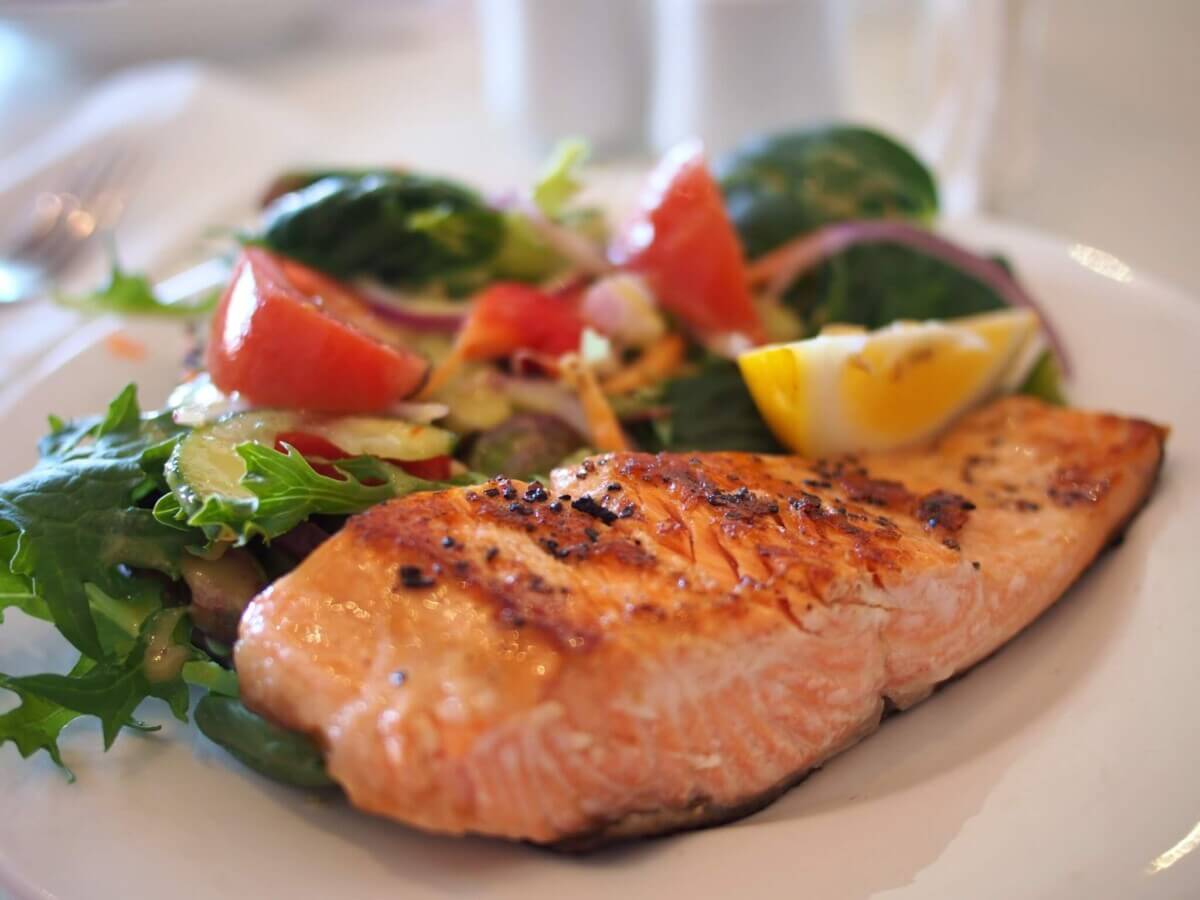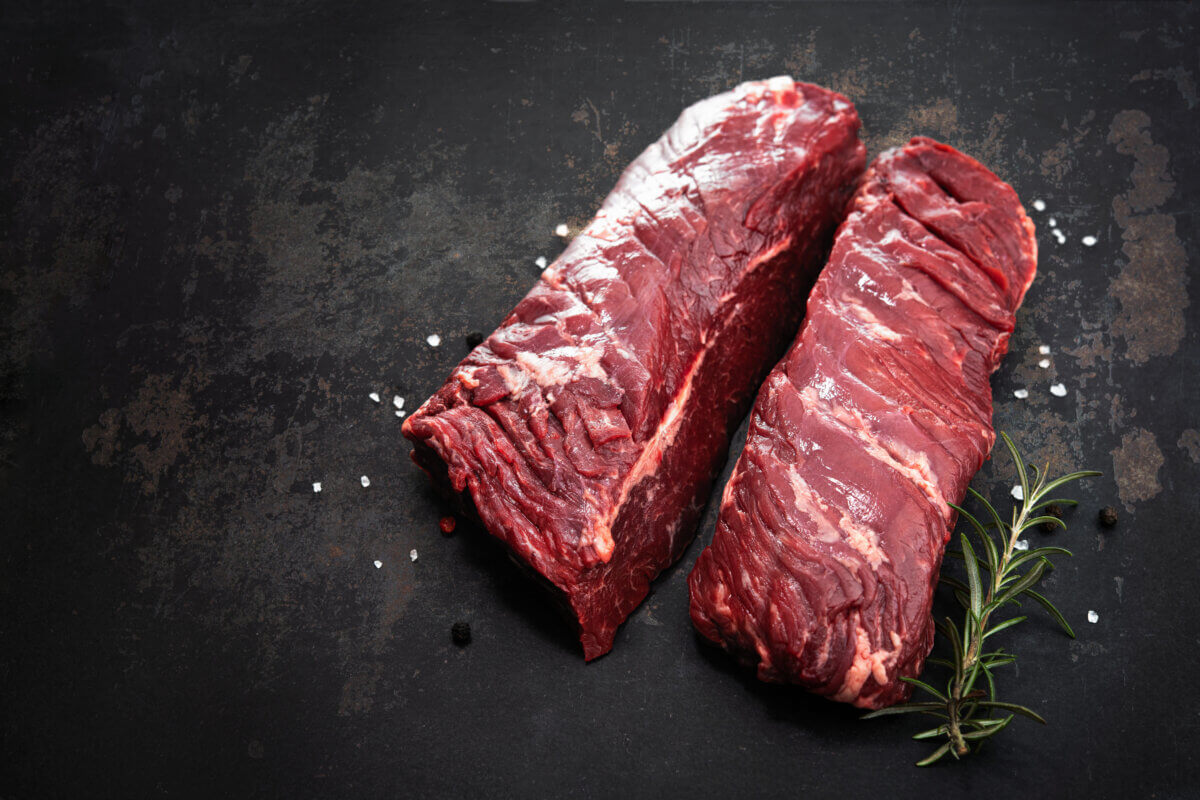
Salmon and other seafood types are one of the best foods for protein.(Photo by cattalin on pixabay.com)
“Am I getting enough protein?” That’s a question you may ask when navigating your nutrition journey. Suddenly, you’re transported into a whirlwind of chicken breasts, protein shakes, and that one friend who swears by tofu. Fear not, protein seeker! We’re here to help you navigate the delicious world of high-protein foods, so you can fuel those muscles without sacrificing flavor. From hearty steaks that make you feel like a caveman (in a good way) to beans that pack a punch without emptying your wallet, let’s dive into the best foods for protein that will make your taste buds and biceps equally happy. Of course, we want to know which foods you eat most often to satisfy your protein requirements, so comment below and let us know!
StudyFinds is a research-driven platform that analyzes and synthesizes expert recommendations from trusted sources. Rather than writing reviews ourselves, we meticulously compile consensus findings from leading industry experts and established publications to save consumers valuable research time. Each article represents hours of analysis across multiple authoritative sources to identify the most consistently recommended choices.
Table of contents
1. Eggs

It’s hard to beat these trusty little protein packed ovals. Eggs are known to have high bioavailability, meaning the body can easily absorb and use the protein that comes from them. Healthline writes: “Keep in mind that egg whites are almost pure protein, but whole eggs that include the yolk provide many more nutrients, including vitamins, minerals, antioxidants, and healthy fats.” Also: “If you’re concerned about the cholesterol in egg yolks, it’s important to note that lots of research has debunked the idea that they’re bad for you.” Do keep in mind that consuming too many yolks may put you over your required daily fat intake, but in moderation there’s no need to fear them.
And if you’re looking to shed pounds, according to Diet Doctor: “Eggs are a great weight loss food because they help you stay full for several hours after eating. And although they’re high in cholesterol, they generally don’t raise blood cholesterol levels much.”
2. Chicken Breast

Here is another staple well-known for providing ample protein. Chicken breast is not only high in protein, but also low in fat when eaten skinless. And there are almost endless ways to prepare it, which can help to keep you from getting bored if chicken makes up a good portion of your diet.
And speaking of ways to prepare chicken, Eating Well shares a couple of tasty sounding ideas: “A simple Baked Lemon Pepper Chicken or Creamy Parmesan Garlic Mushroom Chicken recipe can be an easy weeknight dinner that includes this important nutrient in a delicious way.”
When it comes to poultry in general, WebMD suggests that you consume “white-meat poultry.” They go on to note that “dark meat is a little higher in fat. The skin is loaded with saturated fat, so remove skin before eating.” That’s not to say that you can never consume dark meat; just know that the fat content will be higher. As far as skin, it’s probably best to eat sparingly if at all.
3. Lean Beef

Many people avoid red meat, but lean beef is an excellent source of protein. Most medical professionals do recommend eating red meat in moderation, though. We’re not here to give medical advice, so please do consult your doctor or a nutritionist when it comes to what’s best for your body and diet.
Though lean beef was most recommended across the web, Medical News Today makes a place for fattier beef as well: “Beef offers high amounts of protein per serving. There is a range of different types of beef to choose from for weight loss. People following a moderate carbohydrate diet should eat lean beef whereas a person on a low-carb diet may eat fattier beef.”
Harvard T.H. Chan School of Public Health says of “red meat – which includes unprocessed beef, pork, lamb, veal, mutton, and goat meat—should be consumed on a more limited basis. If you enjoy red meat, consider eating it in small amounts or only on special occasions.”
4. Seafood

Salmon is a go to for those seeking protein in the seafood section, and for good reason, the benefits go beyond that of just the protein content. “[Salmon] provides key nutrients like omega-3 and omega-6 fatty acids, iron, choline, vitamin B12, vitamin D, selenium, and of course, lots of protein. A 3.5-ounce serving of salmon has nearly 20 grams of protein, with less saturated fat than many meat options, according to the United States Department of Agriculture,” writes Prevention.
Of course, there is the chance that salmon has a higher fat content than you’re looking for, in which case there are many other seafood options still high in protein.
And from Medical News Today, a great alternative to salmon: “Tuna is an excellent and widely available source of protein that also has a low-calorie count. Tuna is a lean fish with minimal fat. Add tuna to salads, sandwiches, and snacks. Be careful with additional dressings, such as mayonnaise, as these can add additional, unwanted calories.”
5. Legumes
Of course, you can get protein from non-meat sources, and legumes are highly recommended across the web for a plant-based source. “Legumes include a range of beans and peas such as black beans, chickpeas and lentils. They’re loaded with protein, fiber and many key nutrients including calcium, potassium, magnesium and iron. Don’t let their small size fool you,” writes Johns Hopkins.
According to Healthline, “lentils are among the richest sources of plant-based protein you can eat, making them an excellent choice if you’re following a vegetarian or vegan diet.” They also note: “Studies show that people who regularly consume lentils and other legumes have a lower risk of developing health conditions like heart disease and fatty liver disease.”
So, if you’re not a meat eater and you’re looking for a good source of protein, Legumes will get the job done. Not to mention all the other benefits they’ll bring you.
Sources used to create this consensus list
- Medicine Plus
- Mayo Clinic
- Healthline
- Eating Well
- WebMD
- Harvard T.H. Chan School of Public Health
- Johns Hopkins
- Medical News Today
- Prevention
- Diet Doctor
Note: This article was not paid for nor sponsored. StudyFinds is not connected to nor partnered with any of the brands mentioned and receives no compensation for its recommendations. This article may contain affiliate links in which we receive a commission if you make a purchase.








What to eat and the weight gain powder to consume in order to gain weight, as in add-up more flesh within 30 days
Would like to know more